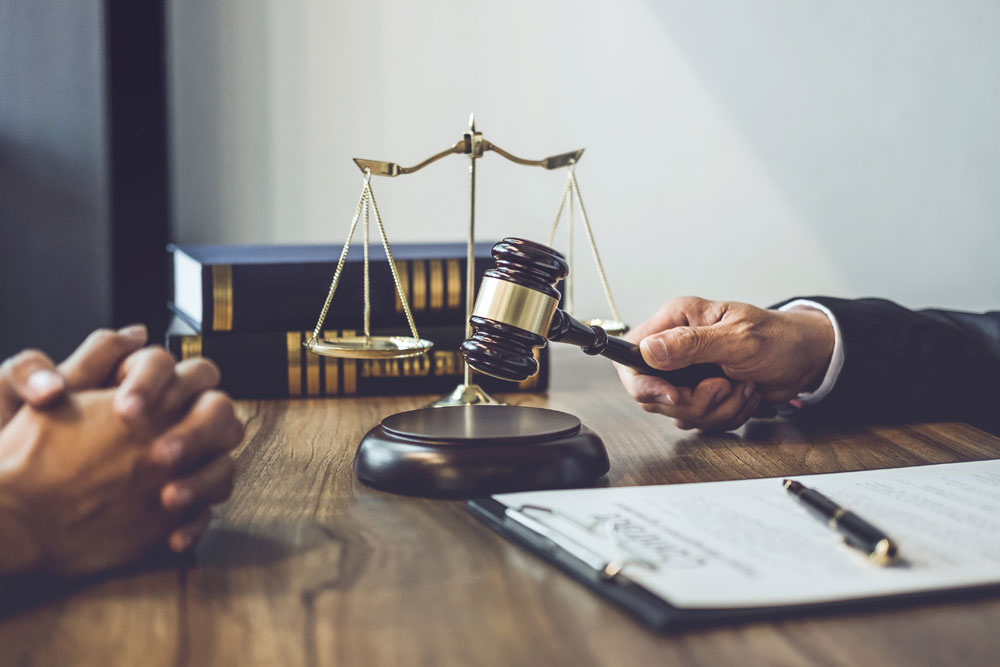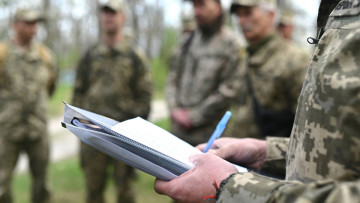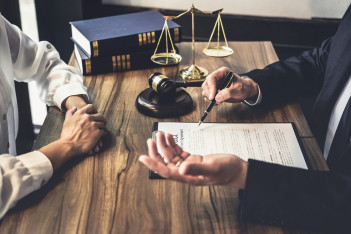I am studying in the third year of the State University of Economics and Technology.I specialize in contractual, economic and corporate law, in particular, I provide consultations and write articles.
Procedural legal succession is an important institution of civil procedural law, which ensures the transfer of procedural rights and obligations from one person to another in connection with the transfer of material rights. The main aspects and grounds for procedural legal succession can be considered in more detail.
The concept of procedural legal succession
Procedural legal succession occurs when a person who was a party or a third party in the process changes as a result of the transfer of subjective material rights to another person. This is necessary to ensure rights and obligations in cases where there are changes in the subjects of the dispute.
Grounds for procedural legal succession
- Transfer of subjective material rights and obligations: In the event of the death of the plaintiff or the defendant, their rights and obligations may pass to the heirs. If a legal entity that was a party to the case ceases to exist, its rights and obligations may pass to legal successors. In cases where the creditor or debtor changes in the obligation, this can also be the basis for legal succession. In situations where other persons replace the parties in the relations that have become the subject of a dispute, procedural legal succession is possible.
- Existence of a pending civil proceeding: In order for procedural succession to occur, there must be a pending civil proceeding prior to the occurrence of the events giving rise to the succession.
- Withdrawal of the relevant party or third party from the process: If one of the parties or a third party withdraws from the process, this may give rise to legal succession. It is important to note that the removal of other subjects does not lead to the emergence of procedural legal succession.
Question
Are the decisions made before his entry into the process binding on the legal successor?
Answer
All procedural actions taken before the legal successor's entry into the civil process are binding on him in the same way as they were binding on the person he replaced. This means that the legal successor assumes not only the rights, but also the obligations that the previous participant in the process had. The legal successor undertakes to comply with court decisions that were made in the process before his accession, as well as to comply with all procedural norms related to the case. This rule ensures the protection of the rights of all participants in the process, as it prevents situations where a change of person in the case may lead to the violation of previously adopted decisions or obligations.
The procedure for the legal successor's entry into the process
- Succession in civil proceedings is regulated by the Civil Procedure Code of Ukraine. The main points regarding the entry of the legal successor and his legal position:
When entering the process, the legal successor is obliged to provide the court with evidence of his/her legal succession. - These can be: an agreement on the transfer of a debt or the assignment of a claim, a certificate of the right to inheritance, a certificate of state registration of a newly created or reorganized legal entity.
The entry of a legal successor is allowed at any stage of the civil process, which provides flexibility and the possibility of protecting rights.
- From the moment of entry, the legal successor acquires all the procedural rights and obligations of its legal predecessor. This means that he has the right to participate in the process, submit evidence, make motions, etc.
- The legal successor does not have the right to demand re-examination of witnesses, re-examination or to challenge the judges only on the grounds that he is a new participant in the process.
- Admission to the legal successor process is formalized by a court decision, which is not subject to appeal. This ensures speed and continuity of the process. If the court refuses to admit the successor, an appeal may be filed against this decision.
Procedural legal succession ensures legal certainty and protection of the rights of participants in the civil process. This institution allows new participants to assume the responsibilities and rights of their predecessors, ensuring continuity of the process.
Question
How does the legal successor differ from the improper party in the process?
Answer
Procedural legal succession arises on the basis of circumstances that have developed during the process, for example, in the case of the death of a natural person or the reorganization of a legal entity. Substitution of an improper party is based on circumstances that arose before the initiation of the civil process, that is, in cases where the party that participated in the process did not have the right to represent its interests. All procedural rights and obligations of the legal predecessor are transferred to the legal successor. When replacing an improper party with a proper one, rights and obligations are not transferred automatically. The new party must confirm its rights, which may require new evidence or justifications. The civil process in the case continues, despite the change of participant. This means that all actions taken remain in force, and the case does not stop. Replacing the wrong side - always starts from the beginning.
Services of a lawyer in civil proceedings:
Legal services in a civil process can provide a wide range of assistance covering all stages of litigation and protection of clients' rights. Here are the main types of legal services:
Lawyer consultation and legal analysis of the situation: The lawyers online analyzes the situation, provides recommendations on legal opportunities and risks. Review of contracts, agreements and other documents to determine the client's rights and obligations.
Lawyer help in document preparation: Preparation of lawsuits, counterclaims and other procedural documents. Preparation of all necessary statements and petitions to the court. Drafting of appeals against court decisions that have entered into legal force. Preparation of cassation appeals to higher courts. Preparation and analysis of contracts, agreements and other documents to prevent disputes.
Court proceedings: The lawyer represents the client in courts of all instances, protecting his interests. Speech of the lawyer in court sessions, presentation of evidence, argumentation of the client's position. Negotiating to reach a compromise or settle the conflict before a trial. Appealing decisions, actions or inaction of state authorities. Assistance in the implementation of court decisions, which includes the execution of court acts.
Procedural legal succession is an important institution that ensures the continuity of the civil process, allowing new subjects to participate in the case in case of changes in its participants. This contributes to the protection of the rights and legitimate interests of all parties, and also supports stability in legal relations. The lawyer services in a civil process help clients to protect their rights and interests, reduce risks and ensure efficient management of the case in court. The lawyer advice is important for the successful resolution of civil disputes.




































